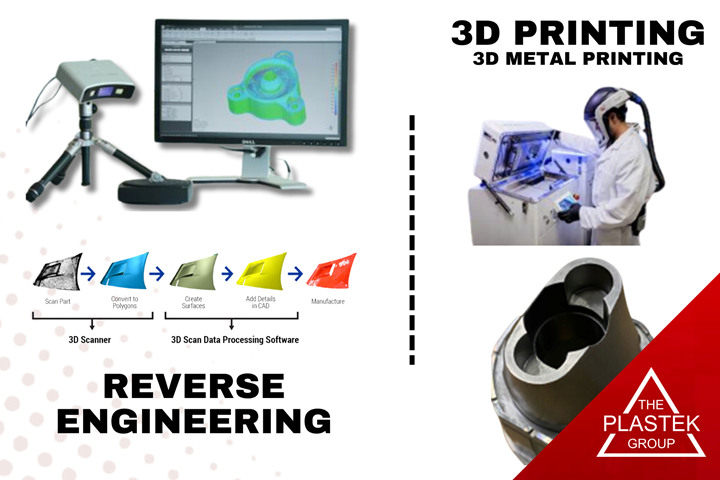Cross-Functional Group Targets Metal 3D Printing Design, Engineering Services
NPE2024: An emphasis on reverse engineering, 3D printing and conformal cooling design capabilities brings high-quality molding and tooling concepts and processes to The Plastek Group customers.
The Plastek Group is a cross-functional group of engineers covering multiple disciplines, from package development, mold design/manufacturing and molding/assembly, with an emphasis on collaboration and quality. In particular, the group is highlighting its reverse engineering, 3D printing and conformal cooling design capabilities.
According to The Plastek Group, metal 3D printing is paramount to improved cycle time and the dimensional stability of molded parts. It sees the technology as an opportunity to quickly provide prototype pilot tools and provide real injection molded parts to customers.
Metal 3D printing has been out for almost 30 years now, but has only recently reached the level required by the tooling industry to fit seamlessly into the everyday workflow. The Plastek Group highlights that recent advances enable molding components to be printed to near-net shapes, eliminating all soft machining. On top of this, when the part is printed, non-machinable features, such as conformal cooling, can be implemented at no extra manufacturing cost. On the molding end, this results in cycle time reduction — due to the implementation of conformal cooling waterlines — and for tooling, all print time is unattended and will run uninterrupted, until the part is complete.
The Plastek Group’s core strengths lay in multicomponent, assembly, automated packaging cells, part removal and insert molding. It assists in everything from part design to mold design to downstream automation.
Related Content
-
3D Printing Technologies for Moldmaking Applications
3D printing technologies, from conformal cooling to complex mold building, are making an impact on the moldmaking industry, one innovation at a time.
-
In "Hybrid" FIM Process, 3D Printing Complements Injection Molding
Alpine Advanced Materials used a desktop 3D printer and the freeform injection molding process to reduce prototype tooling production time and cost for its customers.
-
3D Printing Enables Better Coolant Delivery in Milling Operations
Just like 3D printing enabled conformal cooling channels in molds, additive manufacturing is now being used to optimize coolant delivery in cutting tools.












.jpg;maxWidth=300;quality=90)
